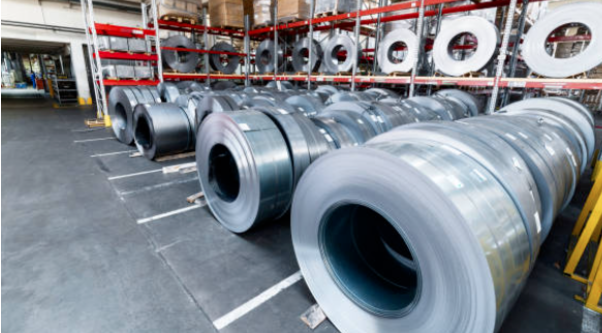
Posted on Friday, September 27, 2024
When selecting metal coils for construction or manufacturing, weather and climate play a critical role in determining the material’s longevity and performance. Environmental factors such as humidity, temperature extremes, and salt exposure can significantly impact the durability of metal coils, making it essential to choose the right materials and coatings. This blog will explore how these environmental factors affect metal coil performance and provide recommendations for selecting the most suitable coil material for various climates.
In regions with high humidity, such as tropical or coastal areas, moisture can promote the formation of rust and corrosion on unprotected metal surfaces. Even in mild environments, humidity can cause oxidation over time, which can weaken the structural integrity of the metal.
Recommendation: To combat corrosion in humid climates, galvanized steel or aluminum coils are ideal. Galvanization coats the metal with a layer of zinc, offering protection against moisture. Stainless steel, which contains chromium, is another corrosion-resistant option, though it tends to be more expensive. Coated coils with paint finishes or anti-corrosive treatments can also provide additional protection in moisture-heavy environments.
Coastal environments, where salt exposure from the ocean is prevalent, are especially harsh on metal coils. Salt in the air accelerates the corrosion process, particularly for steel coils. The salt-laden atmosphere can lead to pitting, a localized form of corrosion that can quickly degrade the surface of metal components.
Recommendation: Aluminum coils are highly recommended for coastal environments because they offer superior resistance to salt corrosion. Coils with advanced protective coatings, such as PVDF (Polyvinylidene Fluoride) or other marine-grade coatings, provide added resilience in salt-heavy environments. Stainless steel, particularly grades like 316, which are designed for marine applications, can also withstand salt exposure effectively.
In regions with extreme temperature fluctuations, metals can expand and contract, leading to fatigue and material failure over time. Prolonged exposure to extreme heat can also affect the performance of some metals, making them more susceptible to warping, cracking, or losing structural integrity.
Recommendation: For environments with significant temperature variations, choose materials like high-strength steel with thermal-resistant coatings. Aluminum is also suitable due to its ability to handle temperature fluctuations without significant expansion or contraction. In extremely cold environments, metals with a high thermal conductivity, like copper, or low-carbon steel, may be necessary to avoid brittleness.
In hot and sunny climates, prolonged UV exposure can deteriorate certain coatings on metal coils, leading to premature fading, chalking, or cracking. This can affect the appearance and potentially the structural performance of the material.
Recommendation: To prevent UV degradation, choose coils with UV-resistant coatings, such as polyester or PVDF, which are known for their durability in sun-drenched environments. These coatings maintain their color and structural integrity despite intense sunlight exposure, making them ideal for use in sunny, arid regions.
The thickness of the metal coil, measured in gauge, also plays a crucial role in ensuring longevity in harsh climates. Thicker coils provide greater durability and structural integrity, especially in areas prone to severe weather events like hurricanes or heavy snow loads.
Recommendation: In areas with extreme weather, such as coastal regions with high winds or regions with heavy snowfall, opt for thicker metal coils (lower gauge numbers) to ensure durability. For example, 22-24 gauge steel is common for roofing applications in harsh climates, while thinner coils (26-29 gauge) may be sufficient for less demanding environments.
The selection of metal coil materials is directly influenced by weather and climate conditions. Humidity, salt exposure, temperature extremes, and UV radiation can all affect the performance of metal coils over time. To ensure longevity and optimal performance, it’s essential to select the appropriate coil material and coating based on the specific environmental conditions where the metal will be used. Whether you’re working in a humid, coastal area, or a region with extreme temperature fluctuations, choosing the right material and gauge will enhance the durability and lifespan of your metal structures.

Used Purlin Roll Forming Machines for Sale Worldwide
Posted on Sunday, January 25, 2026
Pre-Owned Roll Forming Machines for Purlin & Structural Steel Profiles

Used Roof Panel Roll Forming Machines for Sale Worldwide
Posted on Sunday, January 25, 2026
Pre-Owned Roll Forming Machines for Roofing Panel Production

Used Roll Forming Machines for Sale Worldwide
Posted on Tuesday, January 20, 2026
Pre-Owned Roll Forming Machines with Inspection, Verification & Global Support

Steel Coil Supply for Roll Forming Machines Worldwide
Posted on Tuesday, January 20, 2026
Reliable Steel Coil Supply for Roll Forming, Fabrication & Manufacturing Applications
Copyright 2026 © Machine Matcher.